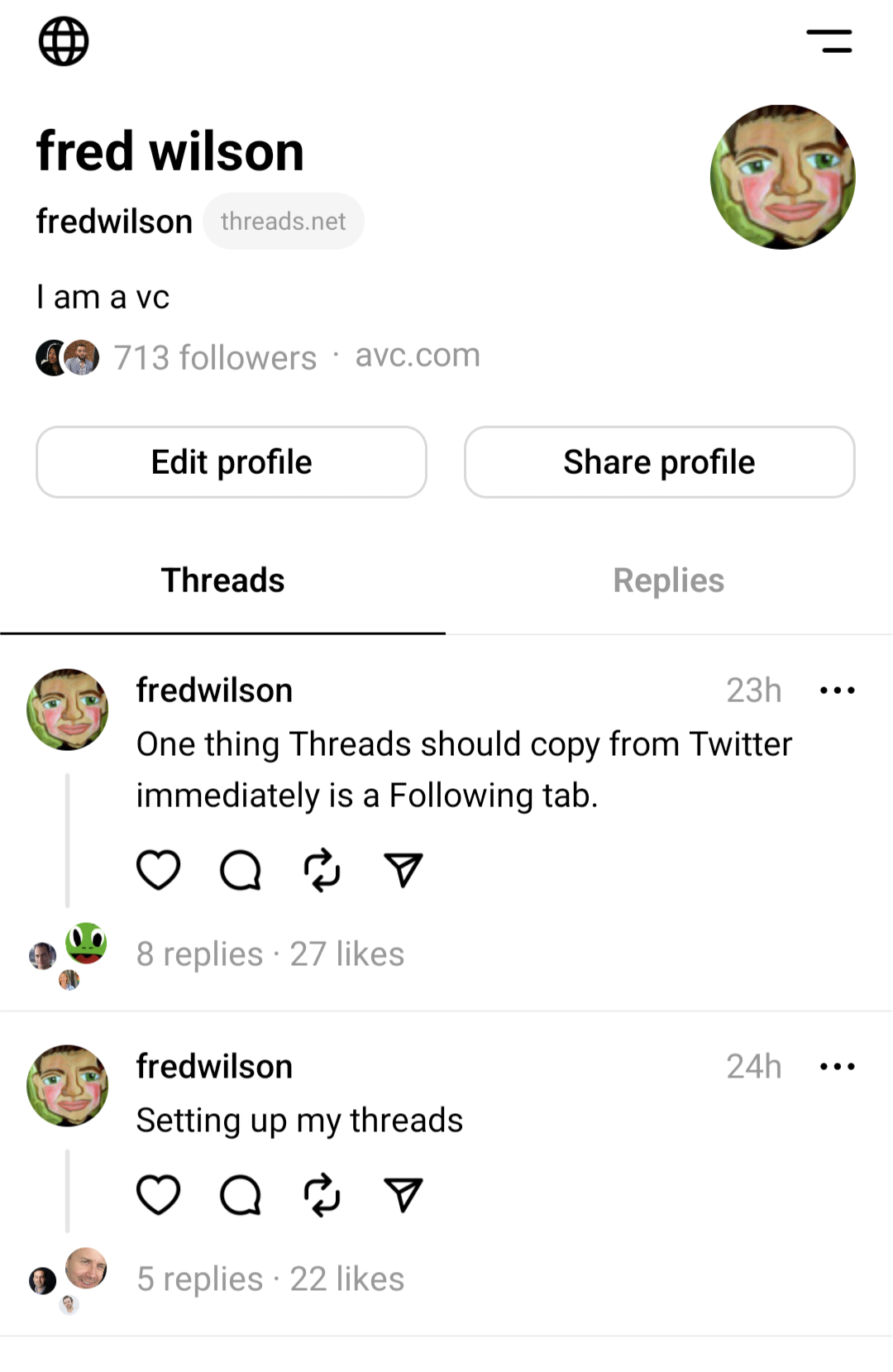I want to focus this post on the macro environment for tech, startups, web3, and climate because that is where my head is at right now.
I believe that sometime in the first half of 2023, the central banks around the world will start backing off the tightening that they have been engaged in as inflation continues to ease and the economy continues to cool. Interest rates will level off in the first half of 2023 and I think there is a good chance of a “soft landing” or a very mild recession in 2023.
With that macro view in mind, what would that mean for tech, startups, and web3?
The largest tech companies will emerge from this downturn leaner and more profitable and growing more slowly. They will be mature businesses that behave like the blue chips that they are. I think these companies, like Apple, Amazon, and possibly Google, will see their stocks come back into favor ahead of everything else in tech. I am hedging on Google because I believe the massive advances in AI/ML that we are seeing right now may be a threat to their core search franchise.
Startups are going to have a tough year in 2023. While many have gotten their burn rates way down, most startups still are losing money and will eventually need to raise capital in 2023. Because most startups avoided raising in 2022, there will be a glut of startup companies in the market for capital this year and while there is plenty of venture capital sitting on the sidelines waiting to be deployed, VCs will be much more selective, instead of funding everything that moves as we’ve done over the last few years.
Good businesses with product market fit, positive unit economics, and strong leadership teams will raise capital although it will be at the new normal in terms of valuation. I believe that “new normal” is more or less where we were in 2015 where seed rounds were done around $10mm, A rounds were done around $15mm to $25mm, B rounds were done around $25mm to $50mm, and growth rounds had a cap at 10x revenues. This new normal will lead to many flat rounds, down rounds, inside rounds, and rounds with a lot of structure on them. None of that is good, but the worst of those options is rounds with a lot of structure. I believe founders and CEOS and Boards should take the pain of a new valuation (flat, down, whatever) over structure.
But there is a huge number of startups out there that have not really found product market fit, have not created positive unit economics, and have unresolved issues in their founding teams and leadership teams. These startups will struggle to raise capital at any price and most of them will fail. This has already started to happen but because so much capital was raised in 2021 and the early part of 2022, it has taken longer for these companies to fail. I think we will see a lot of startups in this category go under or taken out in fire sales in the first half of 2023.
While all of that sounds gloomy and downright horrible, I do think the startup sector will end the year in a much better place. The good companies will have gotten funded, the bad ones will have shut down, and VCs will be back to competing with each other to win deals, which is where founders always want VCs to be.
I think web3 will behave similarly in some respects but different in others.
I think the large caps in web3 (BTC and ETH mainly) will start to attract more interest from investors and should do well in 2023. I am more bullish on ETH personally because it has the best underlying economic model of any web3 asset.
Like the startup sector more broadly, web3 will go through a triage of sorts in 2023. Projects and protocols that have found product market fit, have real token economics, and ship new features quickly will attract new interest and rise in value. But many web3 projects have not found product market fit, have weak or no token economics, and do not execute well and I think we will see many of them continue to flounder and fail in 2023.
There is a much larger overhang in web3 right now when compared to the broader startup and tech sectors. There are entities that are insolvent but have not been restructured. There are funds that are so far under water that they may be forced to liquidate. These kinds of activities will produce ongoing sell pressure on web3 tokens for at least the first quarter of 2023 and maybe for much longer.
While there are compelling values out there in web3, I am not convinced that it is safe to go back into the water just yet unless you have a very strong stomach and a very long time horizon.
Climate, where USV has been actively investing for the last three years and now has two funds dedicated to the sector, has mostly been spared the carnage that has hit the other parts of USV’s portfolio. 2022 brought largely good news to the sector in the form of the oddly named Inflation Reduction Act (IRA) that will flow billions of dollars of capital into the sector over the next decade. Many leading VC firms have dedicated climate funds now and we see huge amounts of capital available for climate startups with strong teams and novel approaches.
Last year I predicted 2022 would be a big year for carbon credits and while we saw a lot of growth in the market for these credits, particularly among the large tech companies, I was way too optimistic about how fast the market would grow. That said, I think 2023 will bring more growth in this market which provides the underlying business model to many of the new climate startups VCs are funding right now.
We are also seeing a noticeable movement of tech and startup talent into the climate sector in search of new problems to solve, more meaning in their work, and many more job openings too. I think 2023 will be a big year for this talent migration.
There is a pattern to much of this and it is that 2023 is going to be a tough year for most but those that get through it should find themselves in a good place, with leaner cost structures, less competition, and healthier employer/employee dynamics. Surviving is thriving in 2023.
So to everyone who is reading this, Happy 2023. Buckle up, hang tough, and be smart.

